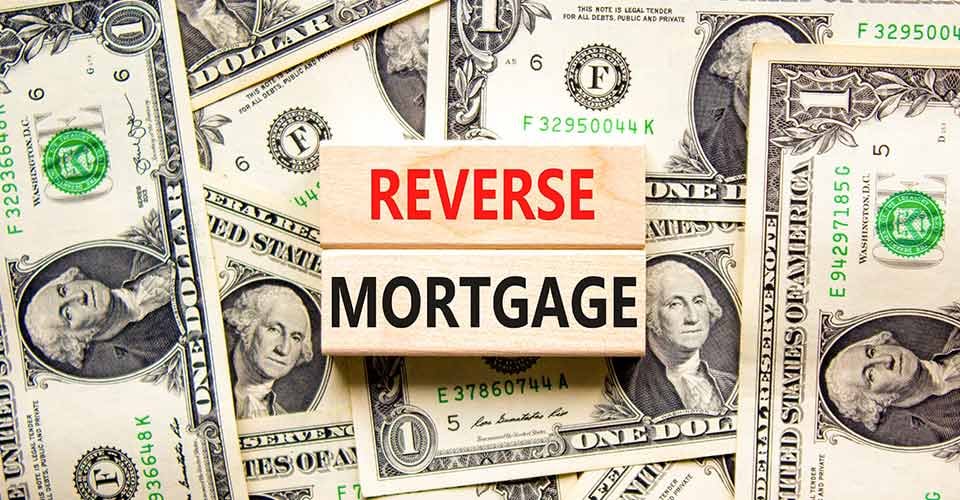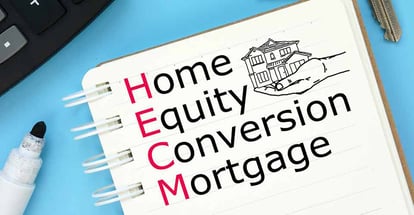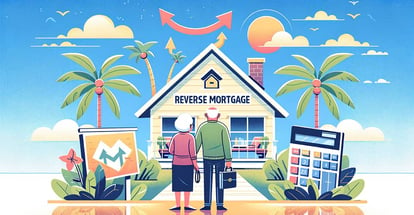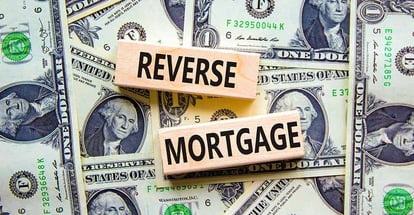Reverse Mortgage Pros and Cons in Florida
Reverse mortgages have become an increasingly popular option for seniors in Florida who are looking to supplement their retirement income. A reverse mortgage is a type of loan that allows homeowners to convert part of the equity in their home into cash without having to sell the property or make monthly mortgage payments.
However, like any financial decision, it's essential to understand the pros and cons of a reverse mortgage before deciding if it's the right option for you.
In this blog, we will explore the advantages and disadvantages of reverse mortgages, specifically in Florida, to help you make an informed decision about your financial future.
Table of Contents
- What is a reverse mortgage?
- How do reverse mortgages work?
- Pros of a reverse mortgage
- Cons of a reverse mortgage
- Could you be a good fit for a reverse mortgage?
- Signs that a reverse mortgage may not be right for you
- The steps to follow when getting a reverse mortgage
- Is a reverse mortgage a good option for you?
What is a reverse mortgage?
A reverse mortgage is a financial product that enables homeowners aged 62 and above to convert the equity in their real estate property into usable cash.
The majority of these mortgages are insured by the Federal Housing Administration (FHA), which guarantees repayment of the debt using FHA reserves if the borrower fails to do so.
These mortgages are known as Home Equity Conversion Mortgages (HECMs), and borrowers are required to pay an upfront insurance premium and an annual premium equal to 0.5 percent of the outstanding loan. These premiums fund the reserves of the FHA.
Besides FHA-insured reverse mortgages, two other types exist, including proprietary reverse mortgages offered by private lenders that are not subject to FHA loan limits, and single-purpose reverse mortgages that are less common and can only be used for a specific need, such as paying property taxes or home renovations.
These options are available through some state and local governments and non-profit organizations.
How do reverse mortgages work?
A reverse mortgage allows homeowners to access funds without requiring immediate repayment. To put this into perspective, let's consider a traditional mortgage.
If you borrowed $100,000 at a fixed interest rate of 6.71% for 30 years, your monthly payment (principal and interest) would be $648. However, with a reverse mortgage of the same amount, you would not be required to make any monthly payments for principal and interest.
But don't be fooled by the lack of monthly payments; you still owe money, and the repayment will be due when you sell the home, move out, or pass away. In the case of the latter, your spouse or heirs would be responsible for paying off the reverse mortgage, which may require selling the home.
Let's continue with the example of the $100,000 mortgage. With a traditional mortgage, the borrower would pay approximately $648 each month, with around $69 going toward principal in the first month to reduce the loan balance.
The remaining $447 covers interest, which is the fee charged by the lender for loaning you the money, plus an estimated average property tax amount that varies depending on your location.
The payment plan continues in this way, with more money going toward the principal and less to interest over time, until the loan term is completed.
A reverse mortgage operates differently from a traditional mortgage. Instead of making monthly payments, you are not required to pay anything back immediately. However, this does not mean that the loan is free of costs.
The interest on the loan is added to the mortgage balance each month, resulting in an increasing balance over time.
As the loan balance grows, the interest cost also increases, and this cycle continues until the loan is repaid. Typically, repayment occurs within one year after you move out of the property or when you pass away.
Pros of a reverse mortgage
Here are a few benefits of a reverse mortgage.
Retirement expenses can be managed more effectively
A reverse mortgage can assist with managing expenses during retirement.
As seniors often face a substantial reduction in income upon retirement, monthly mortgage payments can become a significant financial burden.
With a reverse mortgage, you can supplement your reduced income and effectively manage bills and expenses.
You don’t have to move
A reverse mortgage provides the option of aging in place, allowing you to stay in your home rather than moving out.
This also means that you can potentially remain close to friends and family.
Although there are costs associated with a reverse mortgage, it may still be a more cost-effective option in the long run than moving and purchasing another home or renting in a new location.
The income is not subject to taxation
The funds received from a reverse mortgage are classified as "loan proceeds" by the IRS, and as such, the income generated is not taxable.
However, tax regulations can be complex, and it is advisable to seek guidance from a tax professional before making a decision to obtain a reverse mortgage.
In the event that the balance surpasses your home's value, you are safeguarded
Since the balance of a reverse mortgage increases gradually over time, it is conceivable that it may surpass the property's fair market value.
However, the total amount owed on the mortgage can never surpass the property's value as a reverse mortgage is classified as "non-recourse" financing.
This indicates that in such an instance, the mortgage lender cannot make any claims against your other assets or heirs.
There are several options available to your successors
Although borrowers may pay off reverse mortgages sooner, they typically terminate when the borrower relocates, sells the property, or dies. In an estate circumstance, successors can choose from several options:
-
They can sell the property to pay off the loan and keep any remaining equity beyond the loan balance.
-
Alternatively, they can keep the home and refinance the reverse mortgage balance if the property's value is sufficient.
- Lastly, if the debt surpasses the property's worth, heirs can clear the loan by returning the title to the lender. The lender can subsequently file a claim for any unsettled balance with the insurer, which is almost always the FHA.

Cons of a reverse mortgage
There are also some downsides of a reverse mortgage.
It can be expensive
There are expenses associated with reverse mortgages, such as lender fees (which are limited to $6,000 and based on the loan amount), FHA insurance charges, and closing costs.
These costs can be rolled into the loan balance, but doing so will increase the amount owed and decrease the amount of equity the borrower has in the property.
Additionally, borrowers will be responsible for monthly servicing fees, which can be as high as $35 if the interest rate adjusts monthly.
The interest on the loan cannot be deducted from your taxes until you have fully paid it off
While homeowners may have previously benefited from the mortgage interest deduction on their taxes during the period of repaying their mortgage, this deduction cannot be claimed on the interest for a reverse mortgage on an annual basis.
The tax deduction for interest payments is only available during the period when the loan is being repaid.
You may inadvertently breach other program requirements
In simpler terms, a reverse mortgage can lead to the violation of asset restrictions for programs like Medicaid and Supplemental Security Income (SSI).
This is a complex matter, so it is recommended that you consult with an attorney who specializes in elder law or a legal clinic before considering a reverse mortgage.
Adapting to changes in your status could prove to be challenging
Reverse mortgages can present complexity, and if your circumstances change, your options for a reverse mortgage could change as well. Suppose you move to a long-term care facility; in that case, would you still be classified as a resident in your home?
If you get married after getting a reverse mortgage, will your spouse be required to vacate the property when you die? For answers to these and other inquiries, it's wise to consult a lender or an elder law attorney, or contact a pro-bono legal clinic.
Could you be a good fit for a reverse mortgage? Find out
Is a reverse mortgage a good idea? It's a question with no one-size-fits-all answer, but for some homeowners, the answer may be yes. Consider the following scenarios:
If you plan to stay in your home for the long-term
Since a reverse mortgage involves another set of closing costs, it's important to stay in the home long enough to justify the expense.
If you're 62 years old, have a history of longevity, and believe your current residence is your forever home, a reverse mortgage could make sense.
Additionally, if you live in an area where home values are appreciating rapidly, your property could be worth much more by the time you or your heirs pay back the loan.
If you need additional funds to cover everyday expenses
If you're finding it difficult to manage retirement expenses, a reverse mortgage can provide you with liquid cash to help address those obligations.
With the Consumer Price Index indicating a sharp increase in various expense categories such as groceries and gasoline, this could be an urgent requirement for you.
Signs that a reverse mortgage may not be right for you
Notably, there exist several indications that a reverse mortgage may not be a favorable decision:
-
If you intend to relocate, it is crucial to consider that paying the closing expenses, mortgage insurance premiums, and other fees may require a significant period. Therefore, if you anticipate moving to a different location or downsizing shortly, it is advisable to avoid a reverse mortgage.
-
If there is a possibility of relocating due to health issues, it is worth noting that a reverse mortgage obligates you to reside in the property. Hence, transferring to an assisted living facility or nursing home could necessitate loan repayment. If health concerns are a factor, it is prudent to forego a reverse mortgage.
- If you are grappling with the financial responsibility of your home's other expenses, it is essential to acknowledge that a reverse mortgage's principal requirement is the ability to pay for property taxes and homeowners insurance. If paying for these vital costs has been challenging, obtaining additional debt may not be a viable option.
The steps to follow when getting a reverse mortgage
To obtain a reverse mortgage, and assuming you have weighed the advantages and disadvantages and decided it is a suitable option for you, you should follow these steps:
-
Determine if you meet the eligibility criteria. Being at least 62 years old, living in your home, and possessing a significant amount of equity (typically at least 50 percent) are crucial prerequisites to qualify for a reverse mortgage.
-
Schedule a meeting with a financial counselor approved by the Department of Housing and Urban Development (HUD). Because reverse mortgages are intricate, you will require the expertise of a professional who can clarify all the available options.
-
Compare various lenders. Each lender has unique policies and fees. Ensure you review multiple options to find the lender with the most competitive interest rates and the lowest origination fees and closing costs.
- Consult with your heirs. If your objective is to bequeath your property to someone in your family, it is essential to discuss your reverse mortgage plan with them. Ensure they understand the implications and what they will need to do after you pass away.
Is a reverse mortgage a good option for you?
Reverse mortgages have faced a negative image due to scams that target unsuspecting seniors. Even legitimate companies have utilized fraudulent marketing strategies to convince homeowners to opt for reverse mortgages.
For instance, the Consumer Financial Protection Bureau (CFPB) imposed a $1.1 million fine on American Advisors Group, a prominent name in reverse mortgages, for misleading advertising in late 2021.
Therefore, it is vital to exercise extreme caution before putting your home at risk.
However, one compelling reason why seniors may want to explore reverse mortgage options is due to the increased equity in their homes. In recent years, home equity has grown considerably, along with the surge in home values.
According to CoreLogic, the average American homeowner saw an increase of over 27 percent in home equity between Q2 of 2021 and the same period in 2022. As per the latest figures, the average borrower now has access to just over $60,000 in equity.
With over 50 years of mortgage industry experience, we are here to help you achieve the American dream of owning a home. We strive to provide the best education before, during, and after you buy a home. Our advice is based on experience with Phil Ganz and Team closing over One billion dollars and helping countless families.

About Author - Phil Ganz
Phil Ganz has over 20+ years of experience in the residential financing space. With over a billion dollars of funded loans, Phil helps homebuyers configure the perfect mortgage plan. Whether it's your first home, a complex multiple-property purchase, or anything in between, Phil has the experience to help you achieve your goals.


 By
By  Edited by
Edited by 






